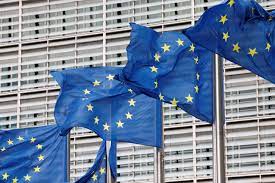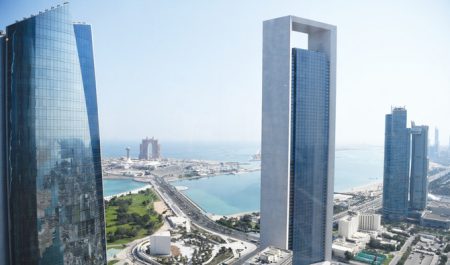Western powers imposed sweeping sanctions on Moscow after Russia launched a full scale invasion of Ukraine in February 2022, which have been progressively ramped up since.
The new restrictions on gas aim to reduce Russia’s revenues from liquefied natural gas (LNG) exports by banning trans-shipments – transferring cargoes from one ship to another – off EU ports and a clause allowing Sweden and Finland to cancel some LNG contracts.
The measures stop short of an EU ban on LNG imports, which have risen since the start of the war.
The sanctions will take effect after a nine-month transition period. The package also prohibits new investments and services to complete LNG projects under construction in Russia.
Gas market experts say the measure will likely have little impact as Europe still buys Russian gas itself and trans-shipments via EU ports to Asia represent only around 10% of total Russian LNG exports.
An EU official said the estimated hit on Russia would be in the millions of euros rather than billions.
Some central European countries still receive pipeline gas from Russia via Ukraine. The EU banned Russian oil imports in 2022 with some limited exemptions.
SANCTIONS LIST
The new package aims to limit circumvention of sanctions by creating more responsibility and penalties at member state level for those found flouting the regulations.
It adds 116 entities and individuals to the sanctions list bringing the total to more than 2,200.
In a separate move, the EU also announced sanctions against six people it said were involved in Russian “malicious cyber activities” against EU countries and Ukraine. It linked four of them directly to Russian intelligence and security services.
The European Commission, the EU’s executive arm, had also proposed expanding the so-called “No Russia clause” passed in a previous package. The measure would have obliged subsidiaries of EU companies in third countries to prohibit the re-export of certain goods to Russia, including those with a dual-use for military purposes, as well as ammunition and firearms.
However, it was scrapped at Germany’s behest. The clause may be added later pending an impact assessment, diplomats said.
In a further move to hurt Moscow’s ability to trade, the package bans EU banks outside Russia from using Moscow’s SPFS system, its equivalent to the global payments system SWIFT. Western powers banned Moscow from SWIFT in 2022.
“It also allows the Council to draw up a list of non-Russian third country banks connected to such system; those banks will be banned from doing business with EU operators,” a statement from the European Commission said.
SHADOW FLEET
The package aims to crack down on the so-called shadow fleet helping Russia’s war effort by creating a framework to add ships to the list of sanctions, such as oil tankers circumventing the Russian oil price cap set by the Group of Seven nations as well as vessels moving North Korean ammunition to Russia.
Vessels could be designated for instances including the “transport of military equipment for Russia, the transport of stolen Ukrainian grain and…the transport of LNG components or trans-shipments of LNG,” the EU ministers’ statement said. Diplomats said 27 ships – mostly tankers – would be listed initially with more to be added later.
The EU has also sanctioned Russia’s state-owned shipping behemoth Sovcomflot and its CEO Igor Vasilyevich Tonkovidov, according to the measures published in the EU’s Official Journal on Monday.
Included in the measures are restrictions on helium, rare earths and manganese ores as well as limits to Russian funding for think tanks and NGOs.
The EU also delayed the start of mandatory full-traceability scheme for imports of rough and polished diamonds to the bloc by six months – until March 1, 2025 – as the latest package amended the import ban on Russian diamonds, one of the industry’s biggest shake-ups in decades, agreed in the 12th package.
The United States is re-evaluating the strictest elements of the ban on Russian diamonds from the G7 major democracies, after opposition from African countries, Indian gem polishers and New York jewellers, seven sources told Reuters in May.
EU countries are now debating a package that would better align sanctions against Belarus that predate Moscow’s invasion of Ukraine with the ones targeting Russia since 2022. Belarus has been major loophole for goods reaching Russia, but members have been reluctant to tackle this over concerns around Belarus’ major fertilizer exports.
Reporting by Julia Payne, additional reporting by Bart Meijer, Andrew Gray and Polina Devitt; Editing by Alex Richardson and Ros Russell – Reuters




